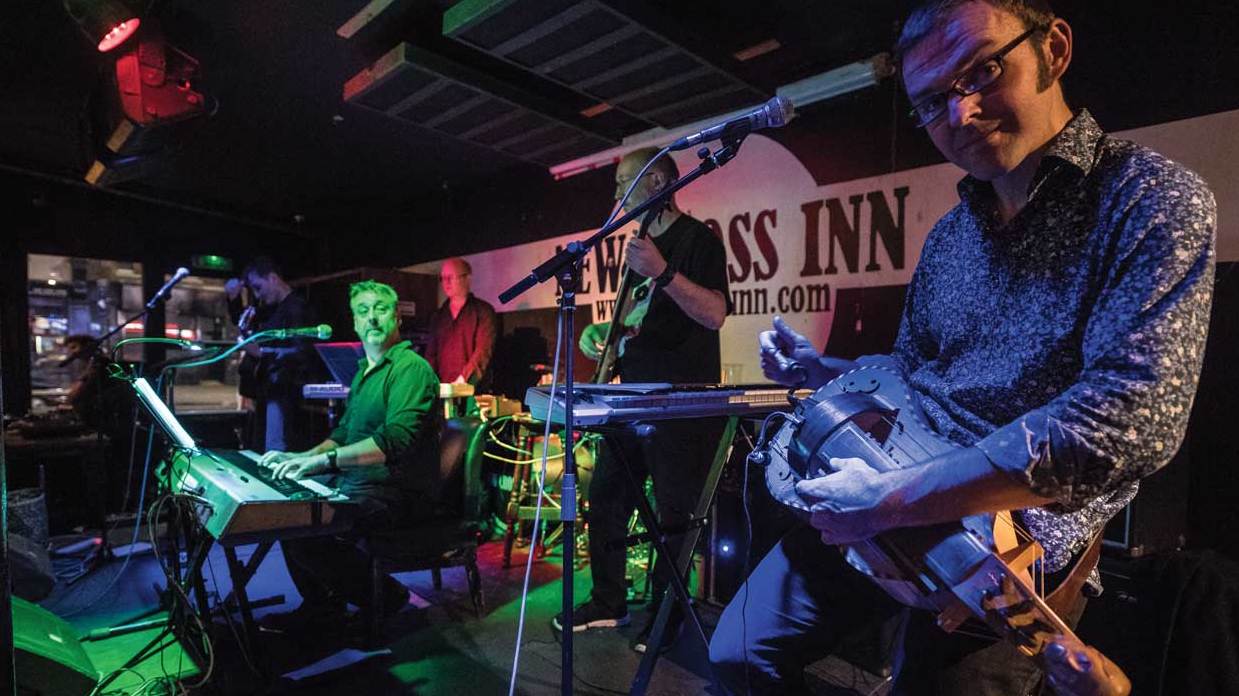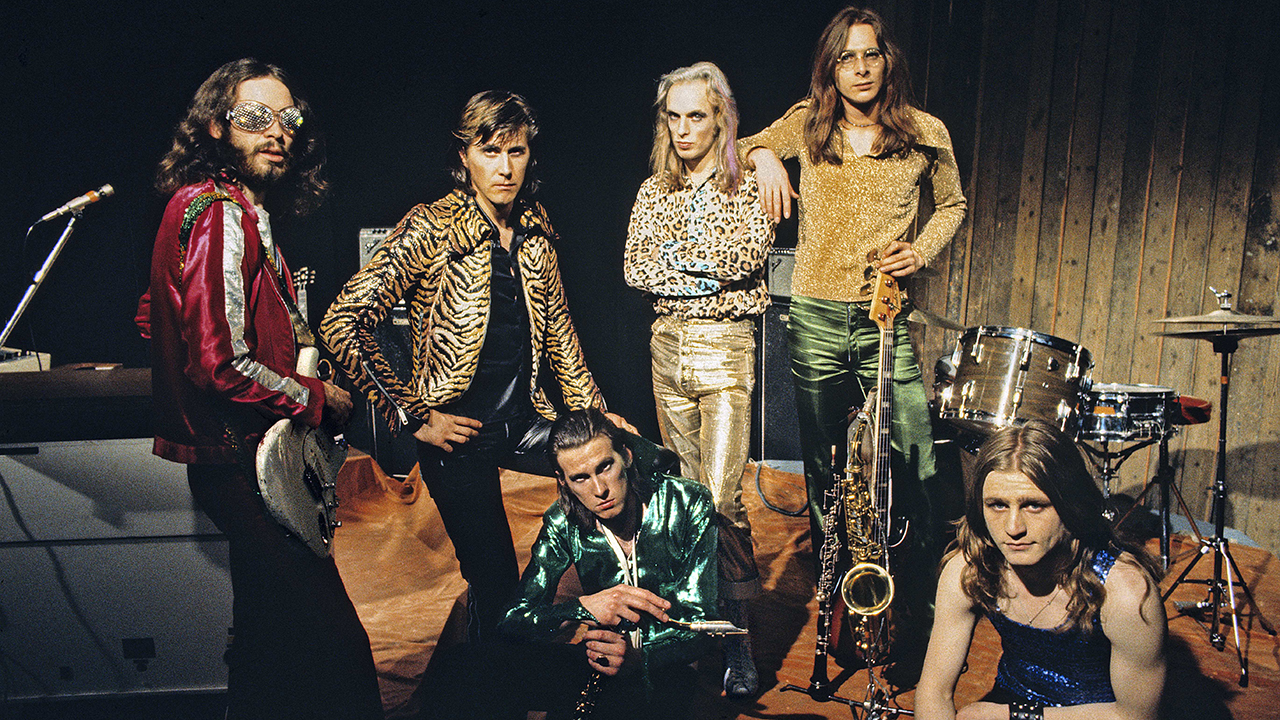You can trust Louder
Outside the venue, there’s the whiff of uncomfortable aggression on the streets tonight. Inside, though, there’s a serenity, a sense of smiling calm. This gig celebrates the 10th anniversary of Onomatopoeia Records, and Drake is headlining the all-day event.
Given that many have been here for several hours by the time he goes onstage, Drake’s opening comment seems apposite: “Is there anybody here still sober?” To his surprise, several hands shoot up.
The location itself is rather odd. The five-piece ensemble are all crammed onto the tight stage. Much of the floor space is taken up with benches and tables, set at angles, which makes it awkward to watch the stage, while many play pool throughout the performance, just a few yards away. However, this all adds an appropriate intimacy to proceedings.
Drake’s music has a baroque eccentricity and melodrama, and it’s also laced with a quirky English eccentricity. This is early Genesis mixing things up with Elgar, while under the influence of Gentle Giant and The Goon Show. It’s certainly surreal, but carries an affecting charm. Drake himself is an expressive pianist, and while he doesn’t have an obviously tuneful vocal style, the way he modulates his tone has a thespian conviction as he recounts stories through the lyrics.
Many of the songs are short, catching out the audience as they unexpectedly end. Occasionally it takes a second or two for the deserving applause to ring out. The Catford Clown and Distant Buzzing are particular highlights, allowing Drake and guitarist Richard Larcombe to complement each other. There’s a real rapport between the pair, which becomes obvious later when they spontaneously grab each other’s hands and break into a burst of pogoing! Meanwhile, James Larcombe on the hurdy-gurdy adds some neat fairground touches.
While the set has clearly been meticulously worked out, there’s room left for spontaneity. So, when On The Dry Land gets a good reaction, Drake decides to repeat it straight away, and this gets an even more dynamic response. In fact, there are a few in the crowd asking him to play it for a third time, but the temptation is resisted.
The main performance ends with the breathtaking Melancholy World, one of the few lengthy excursions that goes through several tempo changes and is wrapped in a rhythmic coat of weariness. The song is imaginative and careworn, showcasing Drake’s talent for weaving a dark tale.
Sign up below to get the latest from Prog, plus exclusive special offers, direct to your inbox!
By contrast, the jaunty Love In An Overcoat, during the encore, has a lightness that could easily cross over to the mainstream. Drake and his ensemble never lose sight of being entertaining, and combine this with a musical depth that’s remarkable. It works splendidly in this most unusual locale.
Malcolm Dome had an illustrious and celebrated career which stretched back to working for Record Mirror magazine in the late 70s and Metal Fury in the early 80s before joining Kerrang! at its launch in 1981. His first book, Encyclopedia Metallica, published in 1981, may have been the inspiration for the name of a certain band formed that same year. Dome is also credited with inventing the term "thrash metal" while writing about the Anthrax song Metal Thrashing Mad in 1984. With the launch of Classic Rock magazine in 1998 he became involved with that title, sister magazine Metal Hammer, and was a contributor to Prog magazine since its inception in 2009. He died in 2021.


